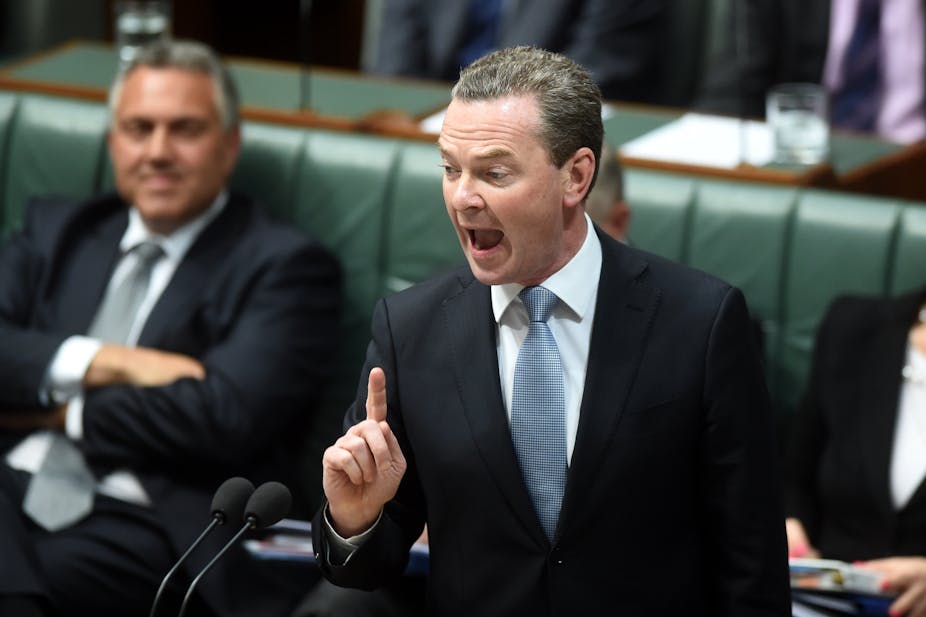Parliament resumes on Tuesday after the winter recess for a fortnight sitting that will test what progress ministers are making in getting crossbench support for various budget measures.
As Coalition MPs get together after the long break, and with new polling due, there will also be an indication of how backbenchers are standing up to the electoral pressure of the unpopular budget.
Still caught between whether to threaten or cajole, ministers today were favouring the stick.
Education Minister Christopher Pyne, who brings his package to deregulate universities into the House of Representatives on Thursday, left hanging that research could be hit if he can’t eventually get a deal with the crossbenchers.
He said it wasn’t the government’s plan to make cuts to research, to which it was very committed.
But “the worst case scenario is cuts without reform. And I think the university sector gets that and I want to work with the crossbenches to make sure we all understand the high stakes we are playing for”, he told Ten network.
Recently Pyne, speaking at a gathering of vice-chancellors from around the country, raised the possibility that if the package didn’t get through, it and other unpassed budget measures could eventually go to a joint sitting after a double dissolution.
Neither side of politics, however, believes there is a chance of a double dissolution in the foreseeable future. Tony Abbott has said voters don’t want another election.
Finance Minister Mathias Cormann told the ABC that if “you don’t want to balance the books by reducing spending, the only alternative to balance the books is to increase taxes”.
The legislation to index fuel excise – which the Palmer United Party opposes - is due to come before the Senate and the package for scrapping the mining tax and associated measures will be there also. Tony Abbott said today that the government was “working with the Senate to scrap the mining tax – a tax that’s raised little yet costs much”.
The PUP is in favour of abolishing the mining tax but Clive Palmer reaffirmed tonight PUP remained committed to retaining three measures associated with it in the legislative package - the schoolkids bonus and two items assisting low income earners. This produced a deadlock between the houses over the package at the end of last session.
PUP met in Canberra today. Last week Palmer had talks with Treasurer Joe Hockey, Cormann, Pyne, Health Minister Peter Dutton and Immigration Minister Scott Morrison. Palmer said he got a “fair hearing” from Morrison and he believed things should be clearer on the asylum seeker issue this week.
Morrison is pushing for his legislation for temporary protection visas to be supported in the Senate.
But Palmer said he did not think TPVs in isolation were the answer. “They may be appropriate for some people”. Palmer wants all unaccompanied children who are in detention on Christmas Island let out, but Morrison would not agree.
Palmer also wants the cohort of 27,000 asylum seekers including those on Christmas Island dealt with quickly to save billions of dollars. Some of these people had been here a long time - they needed some “closure and we need to save the money”.
Abbott today met Environment Minister Greg Hunt and Industry Minister Ian Macfarlane to discuss the renewable energy target, which is causing differences within the government. Palmer again said that PUP would not support any change to the RET target before the next election.
He said PUP would attempt to amend climate legislation this week to include its shell emissions trading scheme, which would only come into operation when other countries had acted on emissions trading.
Maverick Liberal senator Ian Macdonald continued to be critical of the budget at the weekend.
Cabinet meets late tomorrow.

